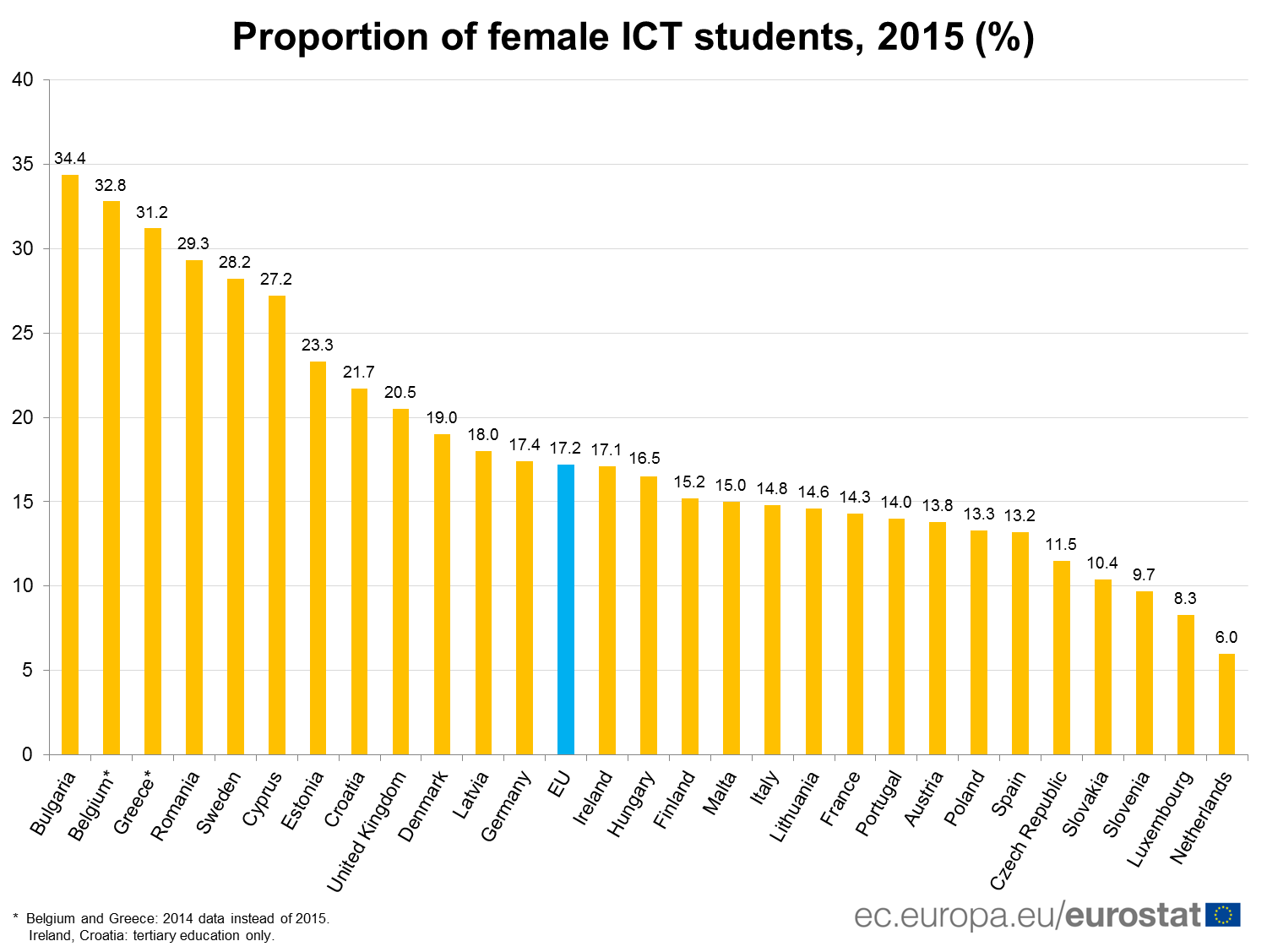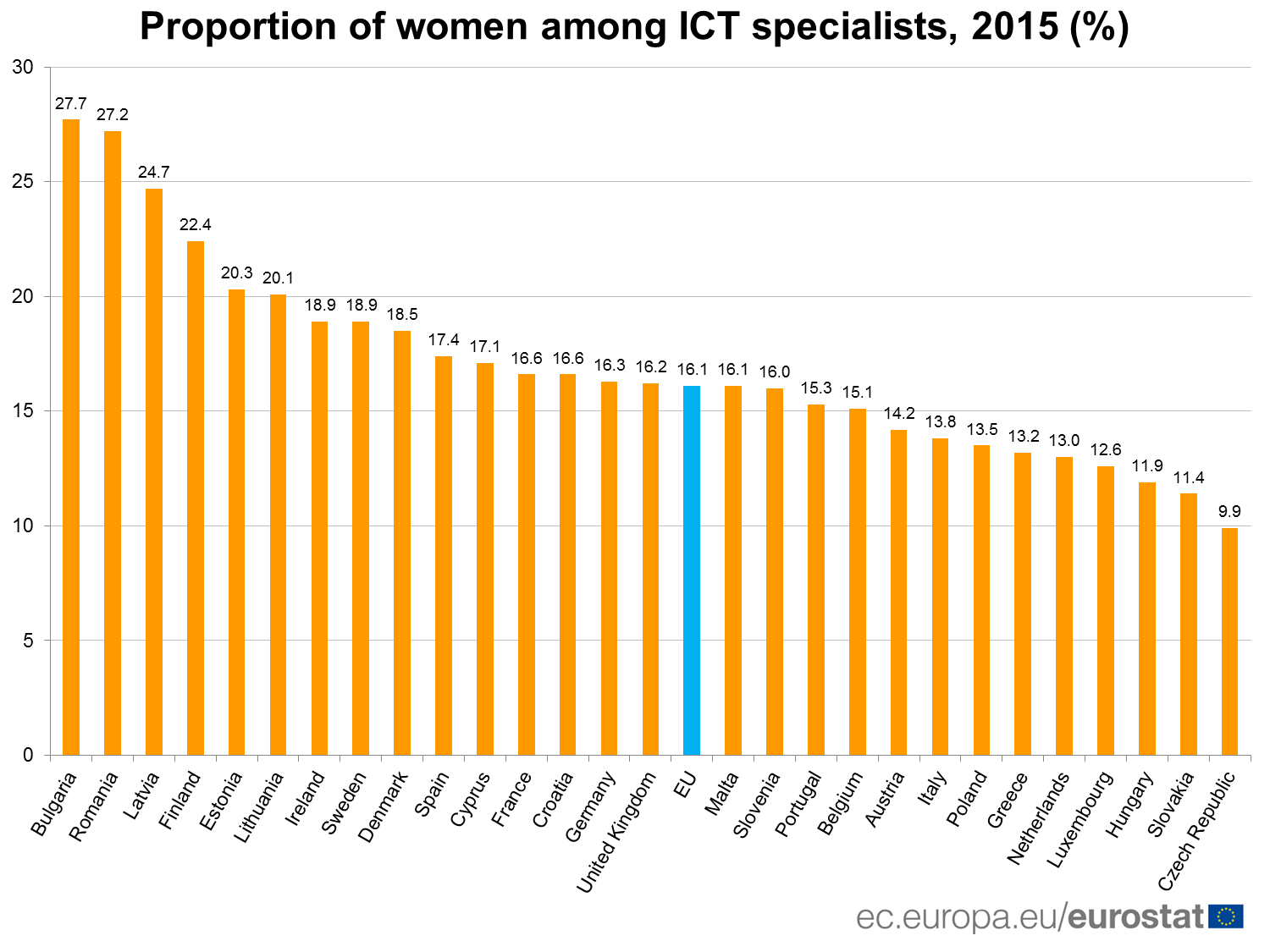The European countries with most women studying and working in the Information and Communication Technology sector
Information and Communication Technology (ICT) is a domain where women are still a minority, according to the most recent data provided by Eurostat. This disparity can be noticed both among ICT students and employees in the aforementioned sector.
Around 1,4 million people were studying Information and Communication in Europe in 2015. Only 17% of them were girls.
On the other hand, certain member countries had more than 17% of students girls. Bulgaria is the front-runner, with 34,4% of ICT students being girls. It is followed by Belgium (32,6%) and Greece (31,2%).
Great Britain comes ninth in this ranking, with 20,5%.

Top 10 countries with most women studying ICT:
1. Bulgaria (34,4%)
2. Belgium (32,8%)
3. Greece (31,2%)
4. Romania (29,3%)
5. Sweden(28,2%)
6. Cyprus (27,2%)
7. Estonia (21,7%)
8. Croatia (21,7%)
9. Great Britain(20,5%)
10. Denmark (19%)
At the opposite end are Slovenia, Luxembourg and The Netherlands, where only 10,4%, 8,3% and 6% of ICT students were female, respectively.
This difference is also reflected on the labour market. In 2015, out of the nearly 8 million people employed in the ICT domain, only 16,1% (1,2 million) were women. Bulgaria came out here as a front-runner as well, with a percentage of 27,7%. The following positions change a bit, though, compared to the previous ranking.
Romania thus comes second, closely following Bulgaria with 27,2%, and Latvia comes third, with 24,7%.
Great Britain comes 15th in this ranking, with a percentage very close to the EU average, of 16,2%.

Top 10 countries with most women employed in the ICT sector:
1. Bulgaria (27,7%)
2. Romania (27,2%)
3. Latvia (24,7%)
4. Finland (22,4%)
5. Estonia (20,3%)
6. Lithuania (20,1%)
7. Irlend (18,9%)
8. Sweden (18,9%)
9. Denmark (18,5%)
10. Spain(17,4%)
The bottom of the ranking includes The Netherlands (13%), Luxembourg (12,5%), Hungary (11,9%), Slovakia (11,4%) and the Czech Republic (9,9%).
There are issues when it comes to the salaries earned by women and men in the ICT world. For example, in early April, Google was at the centre of a scandal regarding this tissue, after the U.S. Department of Labor announced it has evidence regarding women discrimination within the company when it comes to salaries.
Nevertheless, the American giant thoroughly denied the accusations.
Oracle also experienced a similar situation. In early 2017, the U.S. Department of Labor filed a lawsuit against the company claiming that it pays its white male employees better than the others, thus discrimination against female, African American and Asian employees.